Other Pages
- Opinion Poll
- About Us
- Send Your Story
- Contact Us
- Newsletter
- Privacy Policy
- Terms and Conditions

Multiple award-winning Nigerian writer, Chimamanda Ngozi Adichie, has given a detailed account of the four-year feud she had with fellow writer, Akwaeke Emezi, in a lengthy essay titled ‘IT IS OBSCURE: A TRUE REFLECTION IN THREE PARTS’.
In 2017, Adichie granted an interview where she expressed her opinion on whether transwomen should be considered 'women'.
She said in the interview, “My feeling is trans women are trans women. I think the whole problem of gender is about our experiences and how the world treats us. It’s not about how we wear our hair, whether we have a vagina or penis,”
“If you lived in the world as a man with the privileges the world accords to men. Then you switched gender. It’s difficult for me to accept that we can then equate your experience with that of a woman who has lived from the beginning in the world as a woman; who has not been accorded those privileges that men are.
“I’m saying this also with sort of the certainty that transgendered people should be allowed to be. Right? I don’t think it’s a good thing to conflate everything into one. I don’t think it’s a good thing to talk about women’s issues being exactly the same as the issues of trans women because I don’t think that’s true.”
However, the relationship between the two writers became sour after Emezi took to Twitter in 2020 to criticize Adichie over her statement, adding that the 'Purple Hibiscus' writer is transphobic just like British author J.K Rowling.
Emezi is a non-binary transgender who identifies with they/them pronouns.
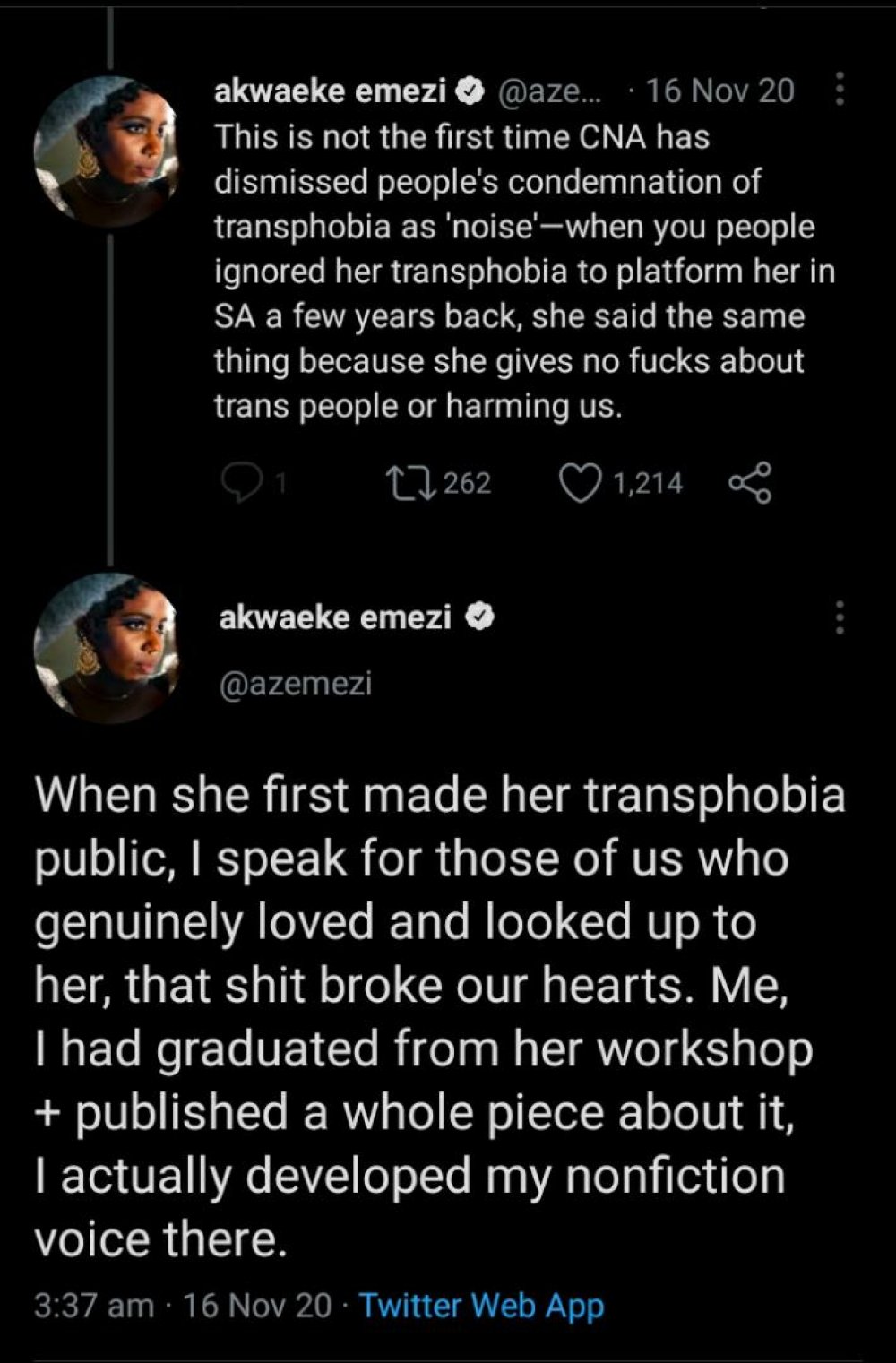
In order to protect her reputation, Adichie penned down a lengthy three-part essay where she addressed the issue.
She wrote, "When you are a public figure, people will write and say false things about you. It comes with the territory. Many of those things you brush aside. Many you ignore. The people close to you advise you that silence is best. And it often is. Sometimes, though, silence makes a lie begin to take on the shimmer of truth.
"In this age of social media, where a story travels the world in minutes, silence sometimes means that other people can hijack your story and soon, their false version becomes the defining story about you. Falsehood flies, and the Truth comes limping after it, as Jonathan Swift wrote."
Read the full text here
Following her essay, Twitter users took to the micro-blogging app to express their opinion on the issue.
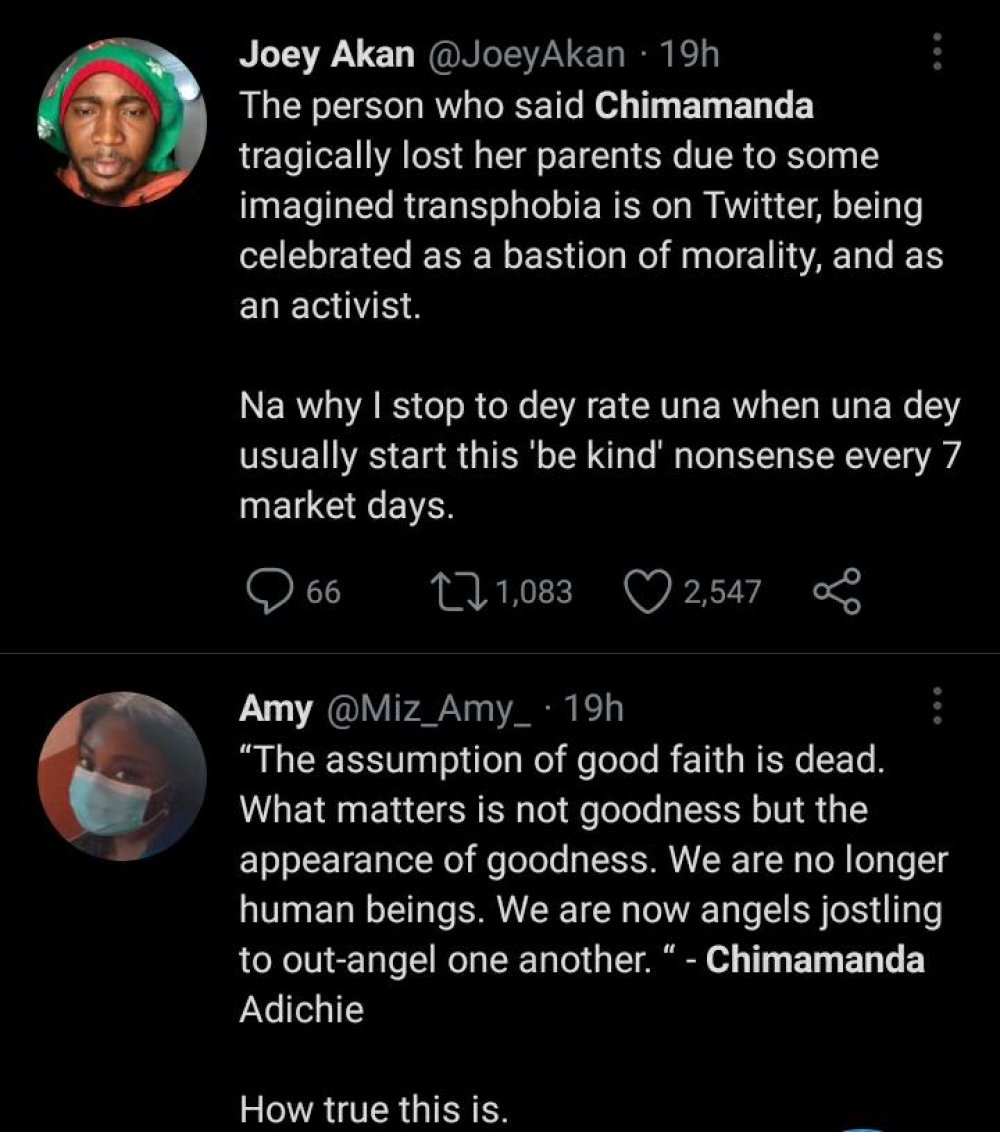
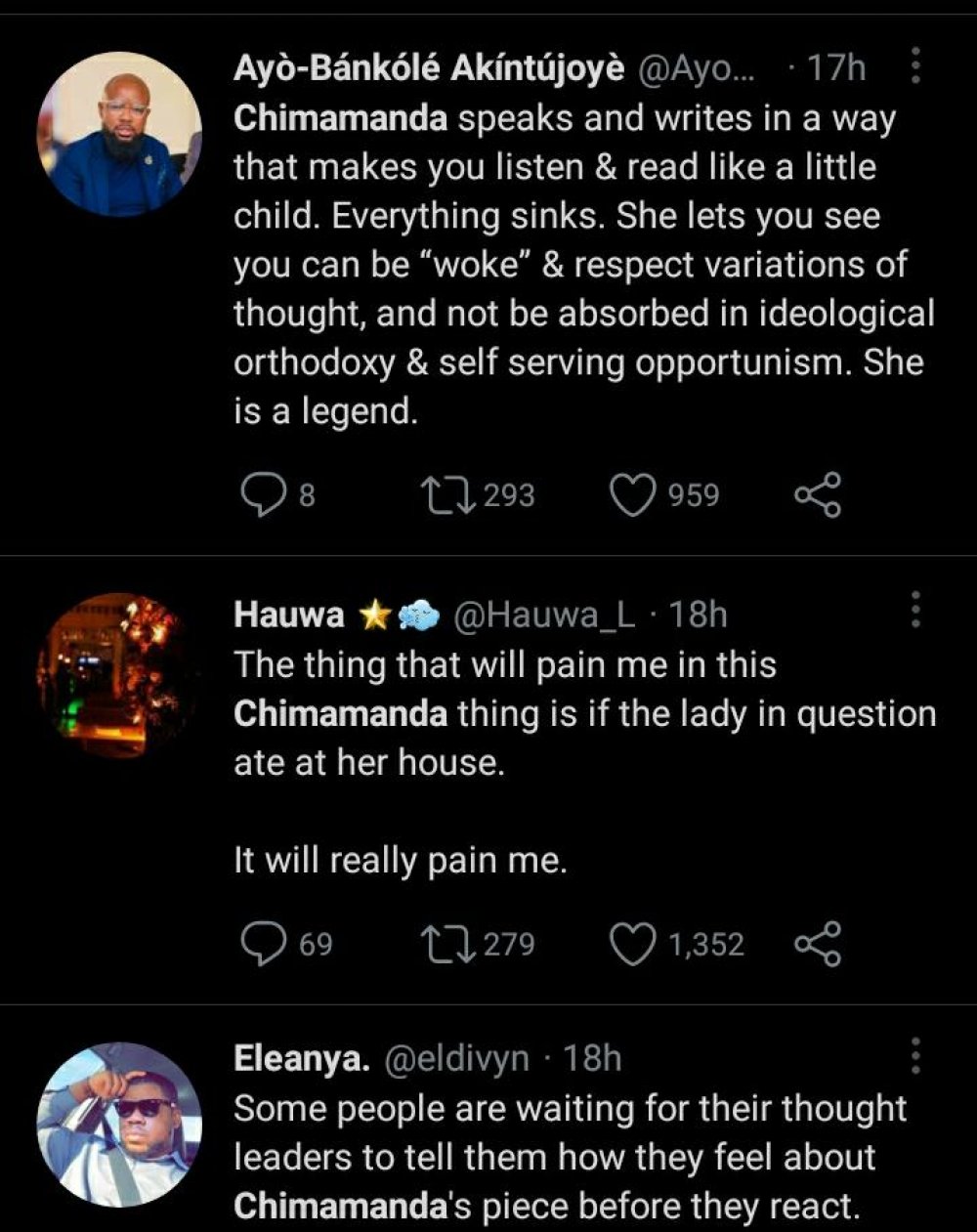
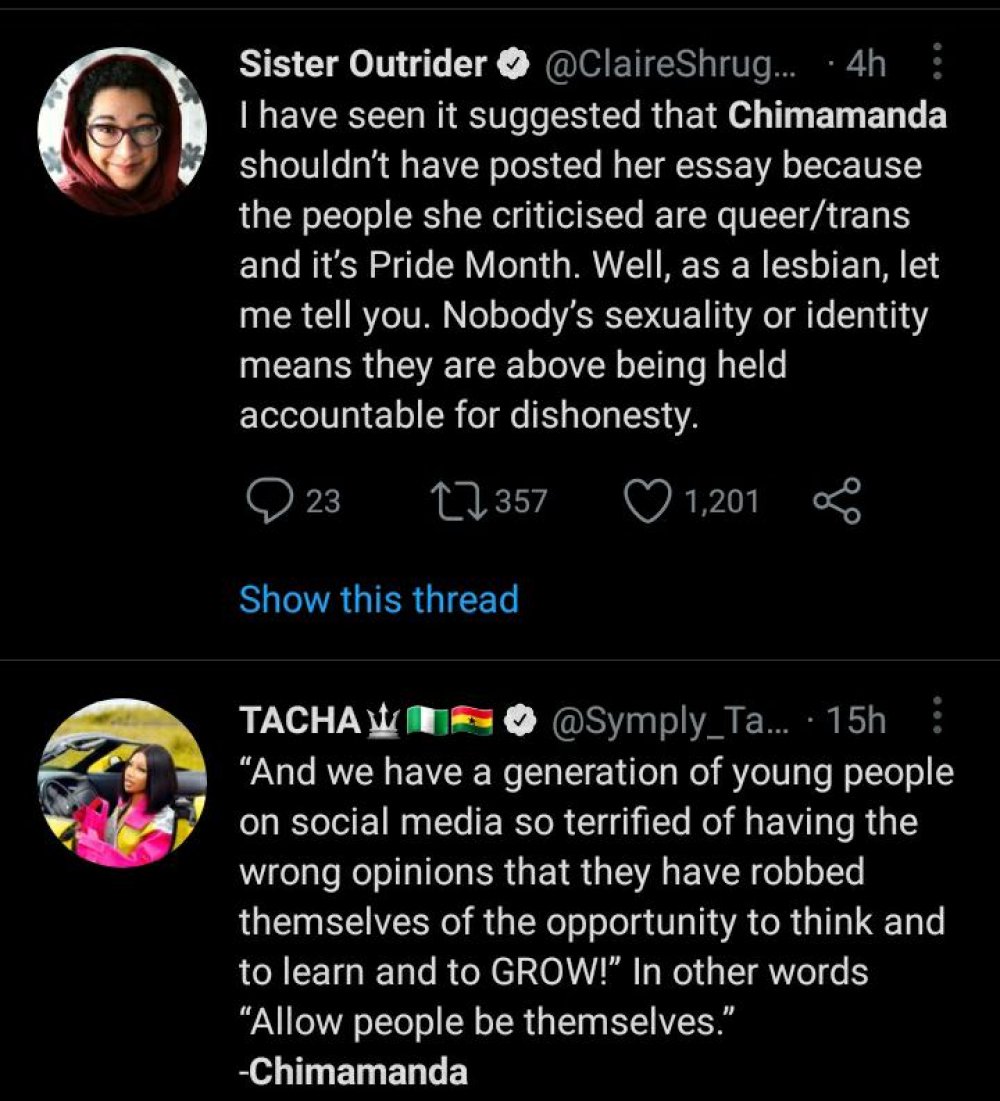
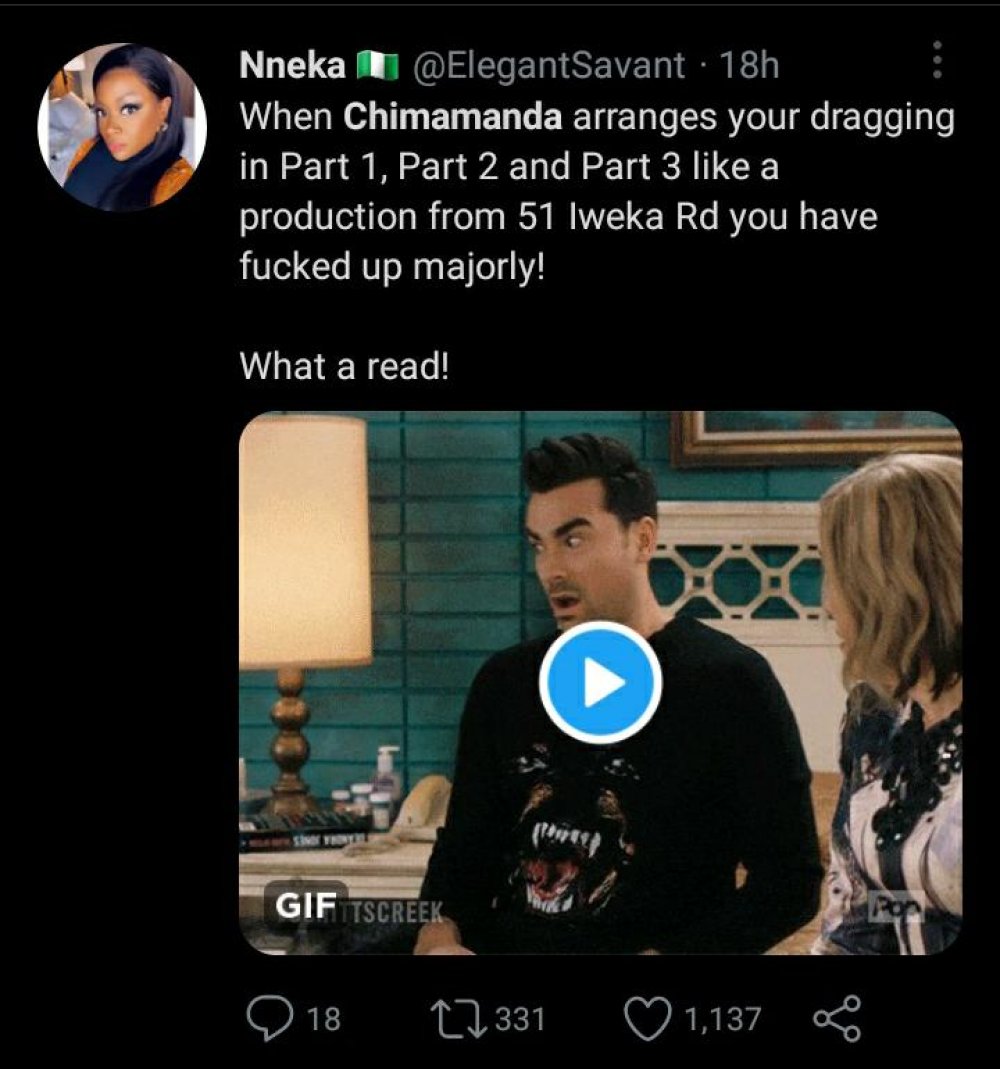
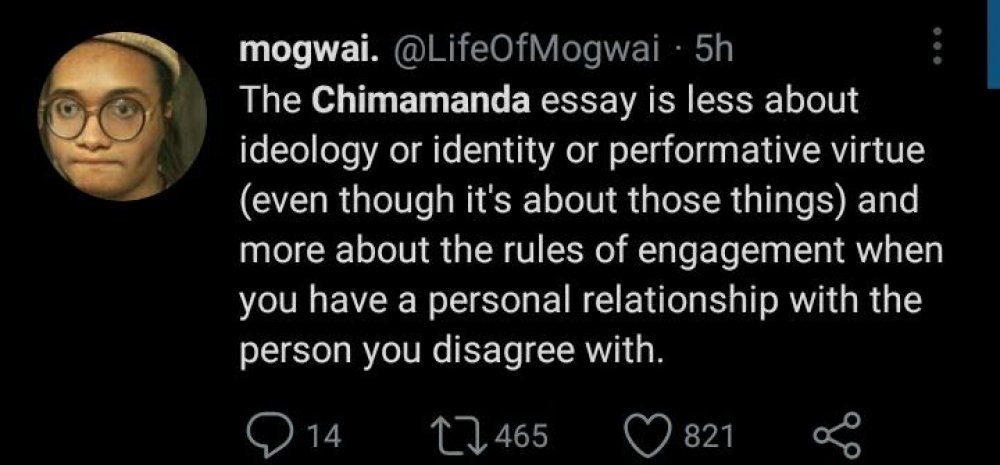
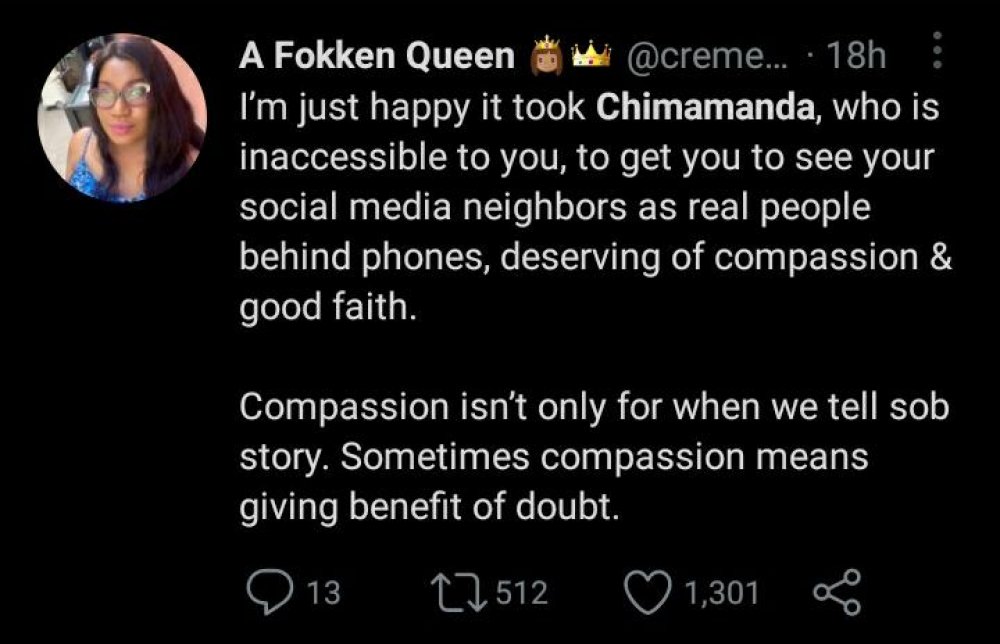
0 Comment(s)